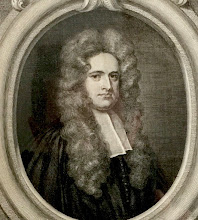Sunday, April 05, 2015
Declarations of Independence
In expressing one's political alignment it's become common among many to say they are "independent." Of course, generically, it can be stated that one is simply not a follower of a specific political party, but more often than not it is used by many to convey their desire to be seen as "open-minded" (who doesn't want to be that?).
In the end, almost everyone independently arrives at their independent viewpoint, no matter where it is on the spectrum. True, some are more adaptable than others and some more open to accepting that others may differ in their views, but there is nothing wrong with having a general tendency in one's beliefs toward conservatism or liberalism. To state that one is independent is often a mere attempt to pretend that one is somehow outside and above of the argument. Everyone is in "the argument" no matter how objective they wish to see themselves.
I'm struck by how many times a person has noted their credentials as bonafide "independents" and then rambled a cookie-cutter critique of a situation that fit quite neatly into a clear position on the political spectrum.
One can be independent of surrounding pressure groups or collective norms of a time and place, but that in itself doesn't make them any more objective or insightful than anyone else who merely holds a belief on a given circumstance.
If there is any distinction with value to be made between styles of political appraisal, it is that of those who merely hold beliefs, and those who wish to impose them forcefully upon others. At various times throughout history, both Fascists and communists could have stated the "independence" of their position, but that hardly distinguished them as anything beyond garden variety dogmatists...and what's so "independent" about that?

